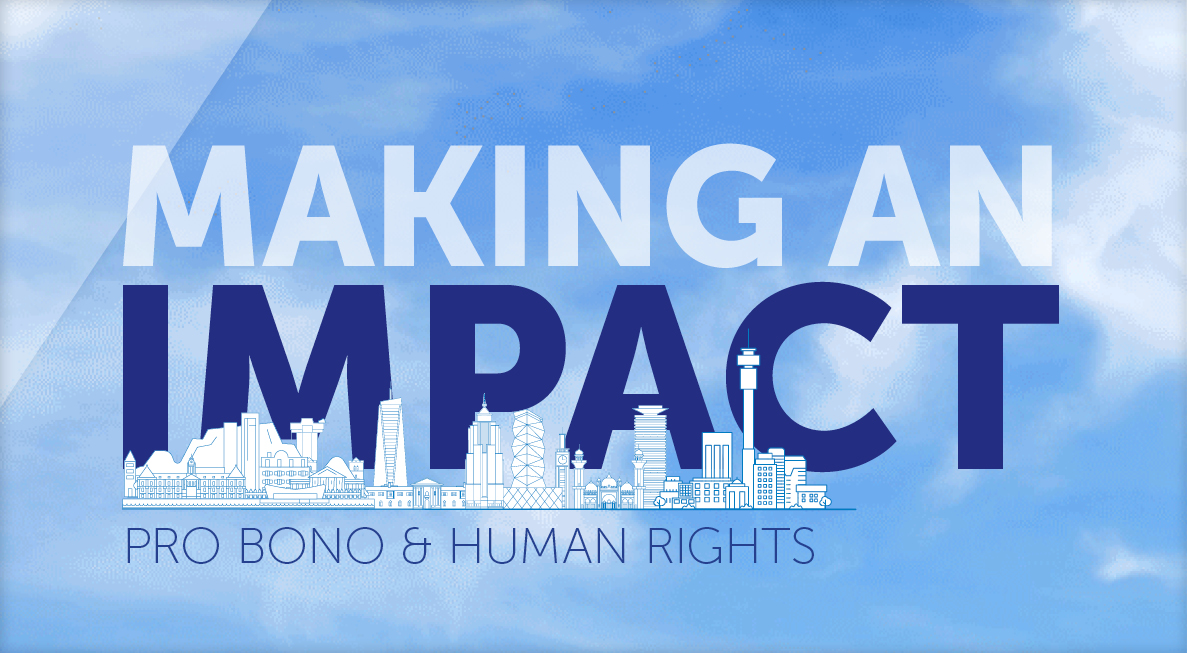The call should come from inside the house: Some clarity on when judgments involving a company under business rescue can be rescinded
At a glance
- The case of CNA Operations v Anglowealth clarified whether employees, creditors, and holders of securities in a company under business rescue qualify as "affected parties" for the purpose of rescinding a judgment in their absence.
- The court established that employees, creditors, and holders of securities in a company under business rescue are considered "affected parties" under Rule 42(1)(a) of the Uniform Rules of Court.
- It was determined that failure to notify these parties of legal proceedings during business rescue can render a judgment vulnerable to being rescinded, highlighting the responsibility of the business rescue practitioners to notify all affected parties.
Briefly, the facts in CNA Operations are that Anglowealth Sharia (Pty) Ltd (Anglowealth) registered a general notarial bond (the GNB) over the moveable assets of CNA Operations (Pty) Ltd (in business rescue) (CNA), as security for a cost-plus financing agreement that it had entered into with CNA in January 2021. Shortly after CNA was placed under business rescue in June 2021, CNA’s erstwhile business rescue practitioners (BRPs) consented to the granting of a court order perfecting the GNB (the Order), pursuant to a perfection application that had been brought by Anglowealth. The terms of the Order were severely restrictive on CNA’s business operations in that they provided that CNA’s BRPs could not:
- sell CNA’s assets unless the entire debt owing to Anglowealth had been paid; or
- use the proceeds from stock sold to pay for any expenses for buying more stock.
In August 2021, subsequent to the granting of the Order, CNA’s erstwhile BRPs resigned and were replaced by its current BRPs. However, due to the stranglehold placed on CNA’s moveable assets by the Order, CNA’s current BRPs were ultimately rendered unable to pay CNA’s ongoing operational expenses; such as its suppliers’ costs, store rental fees and employees’ salaries. Consequently, CNA, together with its BRPs and employees’ representatives, brought an urgent application to rescind the judgment granting the Order in terms of Rule 42(1)(a) of the Rules (the Rescission Application). The Rescission Application was brought on the basis of the undisputed fact that there had been a failure to notify CNA’s creditors and employees of Anglowealth’s perfection application that had resulted in the judgment granting the Order.
Requirements for the rescission of a judgment
Rule 42(1)(a) of the Rules provides inter alia that a court may: “rescind or vary an order or judgment erroneously sought or granted in the absence of any party affected thereby”. With reference to the case of Mutebwa v Mutebwa and Another 2001 (2) SA 193 (TkH), the Court considered and set out the requirements for the rescission of a judgment, which are:
1) firstly, the judgment must have been erroneously sought or erroneously granted;
2) secondly, the judgment must have been granted in the absence of the applicant for the rescission of the judgment; and
3) lastly, the rights and interests of the applicant for the rescission must be affected by the judgment.
The Court seemed to work its way from the bottom up in considering these requirements, by starting with the determination of whether CNA’s creditors and employees qualified as “affected parties” for the purposes of the third requirement. The Court observed that this requirement was traditionally applied in circumstances where the applicant for the rescission had a more obviously recognisable legal relationship to the parties to the judgment sought to be rescinded; thereby clearly qualifying them as an “affected party”. However, in CNA Operations, the impact of the relevant judgment on the rights and interests of CNA’s creditors and employees was ostensibly more remote than would otherwise had been the case had their rights and interests derived from, for example, a direct contractual relationship with Anglowealth. Accordingly, the legal question to be determined by the Court was whether this apparent remoteness prevented CNA’s creditors and employees from qualifying as “affected parties” for the purposes of Rule 42(1)(a).
To this end, the Court looked to the business rescue provisions of the Companies Act 71 of 2008 (Companies Act), and specifically those dealing with the rights of employees, creditors and holders of securities in a company under business rescue. In this regard, the Court found that sections 144(3), 145(1) and 146(a) and (b) of the Companies Act provide employees, creditors and holders of securities in a company under business rescue, respectively, with the rights to:
- receive notice of each court proceeding concerning the business rescue proceedings; and
- participate in any court proceedings arising during business rescue proceedings.
After having considered the above provisions of the Companies Act, the Court essentially found that there is a clear statutory recognition of the fact that legal proceedings can result in outcomes that have an effect on the other constituencies of a company under business rescue; such as its employees, creditors and holders of securities. Consequently, the Court confirmed that these constituencies qualified as “affected parties” for the purposes of Rule 42(1)(a).
Accepting that these constituencies qualified as “affected parties” under Rule 42(1)(a), Anglowealth counter-argued that it had no obligation to notify these constituencies of its perfection application as South African case law has established the principle that creditors of a company under rescue are not required to notify other affected parties of court proceedings instituted during the business rescue (Timasani (Pty) Ltd (in business rescue) and Another v Afrimat Iron Ore (Pty) Ltd (91/2020) [2021] ZASCA 43).
Significantly, both CNA’s current BRPs and the Court agreed with Anglowealth on this point. However, the Court found that this was a novel situation in that although it was not Anglowealth’s obligation to have notified these constituencies, it was an obligation incumbent on CNA’s erstwhile BRPs; who held their positions at the time that Anglowealth’s perfection application was instituted. The Court further found that it was an undisputed fact that CNA’s erstwhile BRPs had failed to notify the creditors and employees of the perfection application.
Considering the undisputed fact that CNA’s employees and creditors were not given notice of Anglowealth’s perfection application, the Court held that second of the requirements for a rescission had necessarily been satisfied as the judgment was consequently undeniably given in their absence.
Turning to the first, and paradoxically final, of the requirements, the Court held that the requirement did not mean that the judgment sought to be rescinded had to be found to be substantively incorrect in law. Instead, the requirement that the judgment had been erroneously sought is satisfied in circumstances where there was, “no proper notice to the absent party, irrespective of whether the order or judgment is otherwise correct.”
Accordingly, the Court ultimately concluded that all three of the requirements for a rescission under Rule 42(1)(a) had been satisfied, and that the judgment had to be rescinded on the basis that it had been given in the absence of affected parties.
From the perspective of a party wishing to institute legal proceedings against a company under business rescue, as well as the BRPs of a company under business rescue faced with impending legal proceedings, this case has underlined the importance of ensuring that the BRPs notify all affected parties of any such legal proceedings. A failure to do so would otherwise render any resulting judgment vulnerable to being rescinded in terms of Rule 42(1)(a). Importantly, this judgment further reiterates that the obligation to notify affected parties sits with the BRPs of the company under rescue.
The information and material published on this website is provided for general purposes only and does not constitute legal advice. We make every effort to ensure that the content is updated regularly and to offer the most current and accurate information. Please consult one of our lawyers on any specific legal problem or matter. We accept no responsibility for any loss or damage, whether direct or consequential, which may arise from reliance on the information contained in these pages. Please refer to our full terms and conditions. Copyright © 2026 Cliffe Dekker Hofmeyr. All rights reserved. For permission to reproduce an article or publication, please contact us cliffedekkerhofmeyr@cdhlegal.com.
Subscribe
We support our clients’ strategic and operational needs by offering innovative, integrated and high quality thought leadership. To stay up to date on the latest legal developments that may potentially impact your business, subscribe to our alerts, seminar and webinar invitations.
Subscribe




